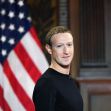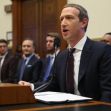On Wednesday, October 28, the Senate Committee on Commerce, Science and Technology virtually brought together the CEOs of Facebook, Twitter, and Google for a lengthy hearing on Social Media Content Moderation.
The hearing centered around amending Section 230 of the Communication Decency Act (CDA). Section 230 is what Chairman Wicker quotes as “The twenty-six words that created the internet,” a reference to a book of the same title by Jeff Kosseff. This provision protects the creators of these social media sites from being held liable for any of the content created or curated on their platforms. Without this protective shield, content platform providers would be held responsible for any content on their platforms and would not have the independent authority to monitor the content.
Jack Dorsey of Twitter, Mark Zuckerberg of Facebook, and Sundar Pichai of Google all argued throughout the hearing the importance of Section 230 of the CDA. Jack Dorsey stated it gives them “tools” such as immunity that protect free speech, not hamper it, and detailed three solutions he saw for the future of this act. Sundar Pichai cited the double-edged sword of the low barriers to entry on the internet and acknowledged that it both promotes free speech but also allows for misinformation. Mark Zuckerberg, in his opening statement, agreed that defining what was misinformation was a difficult task, and called on Congress to assist in the process.
The Chairman of the Committee, Roger Wicker (R-MS), opened the hearing by stating there was strong bipartisan support for a change to Section 230 of the Communication Decency Act of 1996. However, that seemed to be the last of the agreements from the two parties. The Chairman discussed briefly his preference to pass the Online Freedom and Viewpoint Diversity Act, which he sponsored in September of this year to amend Section 230. This act would “modify the scope of protection from civil liability for “good Samaritan” blocking and screening of offensive material.”
The GOP position argues that the CEOs of major social media and content curation sites have an extensive role in arbitrating what is free speech and what is not. They claim that these sites are biased in their ideas of what content should be flagged or removed. While the Republicans argued throughout the hearing that the CEOs took on too much moderation and that it was generally biased against conservative thought, the Democrats generally argued that the CEOs did not do enough to combat speech that was inciting violence or extremism.
Senator Cory Gardner (R-CO) started his seven minutes of questioning with “Do you believe the Holocaust really happened?” directed at Mr. Jack Dorsey, CEO of Twitter. After Mr. Dorsey agreed that he does believe the Holocaust happened, Senator Gardner questioned why he did not censor a tweet to the contrary from the Supreme Leader of Iran Ayatollah Khomeini. Mr. Dorsey clarified the only policy Twitter has on misinformation is if it falls into one of three categories: manipulated media, public health, and civil integrity.
The Senator and other members of the GOP repeatedly compared the censoring of the President of the United States to the delay or lack of censorship of foreign leaders as one of the main issues of Section 230 allowing the platform creators and owners to monitor and moderate as they see fit. They used these examples to call out the leaders of these platforms in what they saw as a hypocritical and non-transparent moderation process.
Senator John Thune (R-SD) stated this clearly when he addressed all three by saying, "You are not the referees of our political speech. That's why all three of you have to be more transparent and fair with your content moderation policies and content selection algorithms."
On the other side of the aisle, the Democrats appeared more concerned about the lack of moderation the sites conducted on hate speech and language that incites violence and extremism. Ranking Member Senator Cantwell (D-WA) wanted to expand the conversation beyond only Section 230 to questions about the protection of privacy of information and the apparent monopoly these sites were having over the information industry.
Congresswoman Cantwell cited that the local news organizations have lost at least 70% of their revenue and thousands of jobs. She argued that competition is the best way to get the most unbiased and factually correct information and news. To the questions posed by the Democrats, the three CEOs outlined their policies and the actions they have taken to be even more transparent about their monitoring policies.
The intent of the Senate hearing was to gather information on how best to amend Section 230. However, the committee spent very little time on that endeavor. The Republicans used their time to argue that these CEOs have overwhelming power to sway public political opinion, while the Democrats chastised their Senate colleagues for their inappropriate use of the hearing to sway opinion so close to the 2020 election.






